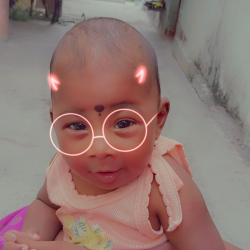

To delve into the notion that "mother is the beauty of the universe," one can explore this concept from various angles—philosophical, emotional, and symbolic. This idea paints mother as an embodiment of profound beauty, intricately woven into the fabric of existence itself.
Philosophical Perspective
Philosophically, the idea that "mother is the beauty of the universe" can be viewed through the lens of nurturing and creation. The universe, vast and enigmatic, reflects principles of creation and sustenance similar to those attributed to motherhood. Just as a mother nurtures life and facilitates growth, the universe provides the conditions necessary for existence and evolution. This parallel draws a connection between the nurturing qualities of motherhood and the expansive, life-supporting nature of the cosmos. The ultimate beauty of the universe, then, can be seen as a manifestation of these nurturing principles, making the concept of "mother" a symbolic representation of the universe’s life-giving essence.
Emotional and Symbolic Representation
On an emotional level, the concept taps into the deep, universal bond between a mother and her child. This bond is often characterized by unconditional love, protection, and selflessness. The idea that a mother embodies beauty resonates with the intrinsic value and purity of this relationship. To many, a mother’s love represents an ideal of beauty that transcends physical attributes, embodying qualities such as warmth, care, and emotional strength. This emotional beauty reflects a more profound truth about the universe itself—its ability to inspire awe and wonder, much like the feelings associated with maternal love.
Symbolically, the mother figure often represents the Earth or nature in various cultural narratives. In many traditions, the Earth is personified as a nurturing mother, providing sustenance and care to all living beings. This symbolic mother is the ultimate source of life, and her beauty lies in her ability to sustain and support diverse forms of life. By extending this symbolism to the universe at large, one might argue that the ultimate beauty of the cosmos lies in its role as a grand, nurturing entity that fosters the existence and growth of all things.
Universal and Cosmic Dimensions
Expanding the concept further, the notion that "mother is the beauty of the universe" can also be interpreted through the lens of cosmic phenomena. The universe, with its vast galaxies, stars, and planets, can be seen as a grand spectacle of beauty. In this sense, the universe itself can be likened to a mother who gives birth to stars, planets, and all forms of life. The beauty of the universe lies in its capacity to create, sustain, and transform matter, mirroring the processes of birth and growth associated with motherhood. This cosmic perspective highlights the idea that beauty in the universe is not just about visual splendor but also about the underlying processes that create and sustain existence.
Cultural and Historical Interpretations
Historically and culturally, many societies have revered the concept of a mother or maternal figure as central to their understanding of the universe. In ancient mythologies, goddesses of fertility, creation, and nature often embody the universe’s beauty. For instance, Gaia in Greek mythology and Pachamama in Inca tradition are revered as mother figures who represent the Earth and, by extension, the universe. These cultural narratives underscore the idea that the beauty of the universe is deeply intertwined with maternal qualities.
Conclusion
In conclusion, the statement "mother is the beauty of the universe" encapsulates a rich tapestry of ideas about creation, nurturing, and the essence of existence. Whether through philosophical reflections on the nurturing nature of the universe, emotional connections to maternal love, symbolic representations of the Earth as a mother, or cultural reverence for maternal figures, this concept offers a profound and multifaceted view of beauty. It suggests that the ultimate beauty of the universe is reflected in the life-giving, nurturing qualities associated with motherhood, presenting a harmonious and interconnected view of existence.


